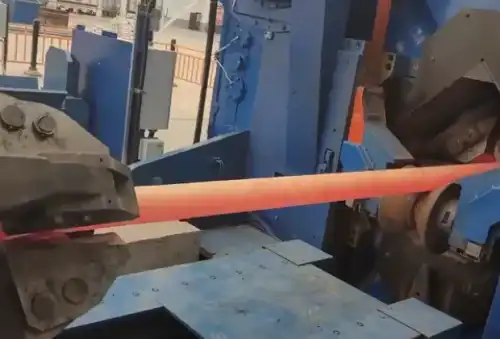Titanium alloy tube, a special tube carefully made of the manufacturing process of titanium alloy tubes, has won wide acclaim and application in many industrial fields for its excellent characteristics such as lightweight, high strength, high-temperature resistance, and corrosion resistance. Its excellent mechanical properties and stamping properties, coupled with the fact that it can be processed by welding and other processes, and the strength of the welded joint is almost equivalent to that of the base metal, and the cutting performance is also excellent, make titanium alloy tubes play an irreplaceable role in many fields such as chemical equipment, petroleum, electricity, seawater desalination, construction, and daily necessities.

In the manufacturing process of titanium alloy tubes, the fineness of the processing technology directly affects the final performance and quality of the tube. From the initial smelting to the final forging, every step has been strictly controlled and optimized.
In the smelting stage, the sponge titanium and the intermediate alloy mixture are directly melted by advanced plasma gun or electron beam gun technology to obtain high-purity tubular hollow ingots. During this process, the raw material ratio, melting temperature, melting time, and other parameters are precisely controlled to ensure that the chemical composition and microstructure of the ingot are in the best state.
Traditional columnar titanium alloy ingots are made into tube blanks through the drilling process, and titanium chips are recycled for remelting to improve material utilization and reduce costs.
Next is the forging stage, which is a key step in the manufacturing process of titanium alloy tubes. After the as-cast tube blank is heated to a specific temperature, it is radially forged three times. Each forging requires the replacement of the mandrel and the strict control of the deformation and movement speed of the tube blank. Through this series of forging processes, the cross-sectional shape of the tube blank gradually changes from the original outer square and inner circle to the outer octagon and inner circle and finally returns to a circle. In this process, the control of temperature and speed is extremely critical, which directly affects the mechanical properties, microstructure, and surface quality of the tube.
In addition, advanced detection technology and quality control methods are used in the forging process and the manufacturing process of titanium alloy tubes to ensure that every detail of the tube meets the standards, to meet the various needs and application scenarios of customers.





